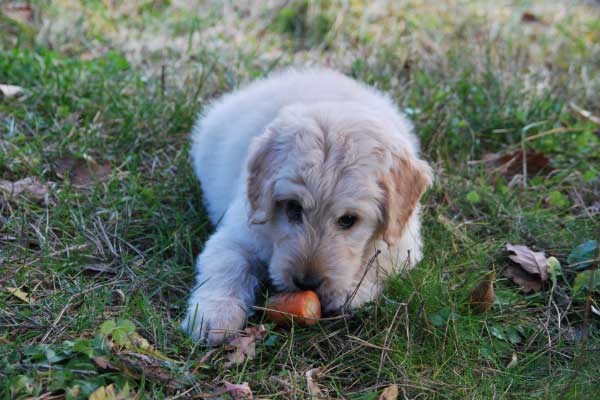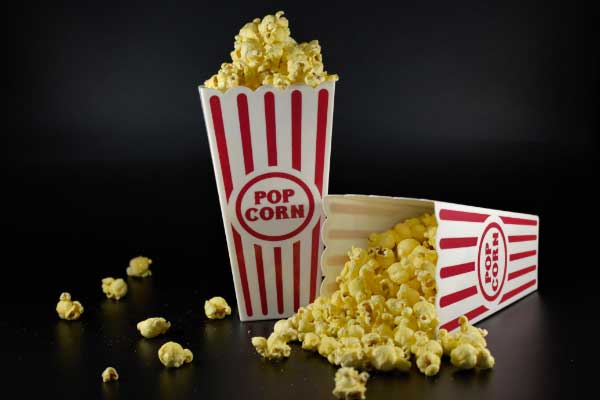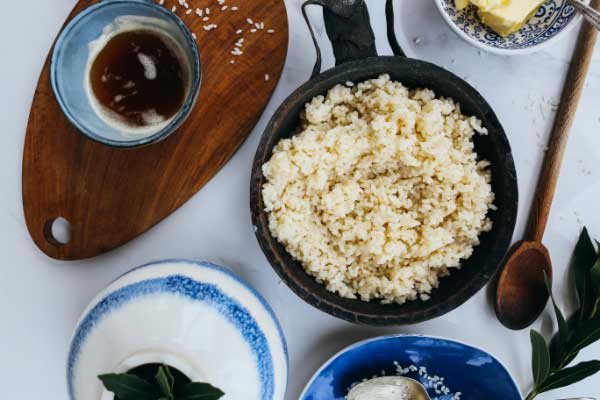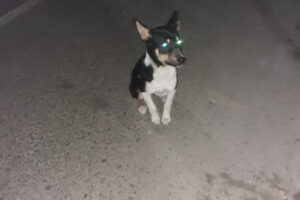We keep different animals such as dogs, cats, birds, turtles and many more. Pets bring joy and love to our lives. After living for a long time, pets became our closest friends and relatives. With the development of urban culture, our pet dog rearing has changed a lot. Not in the open place, their place usually in urban area have become within the four walls of the flat. Thus, we have to be careful in everything about their eating, bath and so on. We should have good understanding about best dog foods.
Just as pets make our lives happier, they need to be properly cared for. However, many of us do not know the proper way to raise and care for pet breeds. This can cause harm to one’s favorite animal without knowing it. Let’s look at ways to take care of pets in the right way with proper food.
Try best housekeeping puppy food today to get a superb result for a healthy pet dog.
Not always a separate meal for dogs
In our village, pet dogs are given home-cooked food. We can’t even think of a separate food for dogs. But nowadays in the city we keep a variety of domestic and foreign dogs.
Many of us think that our daily food may not be given to pets especially dogs. They always have to eat packet dog foods. But this idea is not correct. Dogs can eat a lot of the food we eat every day. Your favorite dog can easily eat such meat, boiled vegetables and fruits. However, be sure to consult a veterinarian before feeding any food.
It is good to know that fast food can never be fed to a dog. Also grapes, avocados, onions and garlic are absolutely unsuitable food for dogs. These foods can cause serious harm to dogs.
Every day different meal good for dogs
Think about it, will you want to eat the same food every time? Answer is Of course not. The same is true of pets. Pets also get annoyed when given the same food all day. So you have to give different food every time. Cats and dogs in particular do not like continuous food. So make a diet for them keeping in mind the nutritional and variety of food.
Dog foods compilation

Dogs and humans digest food separately. For this reason, some foods are safe for humans to eat, but can be toxic and potentially deadly for dogs. Again I’m saying Dogs and humans metabolize food separately. For this reason some foods are safe for humans to eat but for dogs it can be toxic and potentially deadly.
On the other hand, there are many human foods that are perfectly safe and even healthy for dogs to eat as an occasional treat. This article provides an overview of 50 foods and whether your dog can eat them.
50 foods that are dog avoid or like to eat







1. Carrots:
Both raw and cooked carrots are safe for your dog to eat. Carrots are low in calories and a good source of vitamins, minerals and fiber. This makes it a very healthy food to make snacks for your dog. Before feeding your dog carrots, cut them into small pieces of bite-sized pieces to prevent suffocation.
2. Grapes and raisins: not good food for dogs
Your dog should never be fed grapes or raisins. Grapes and raisins contain toxic compounds that are harmful to dogs. They are more likely to lead to rapid kidney failure and death. Even small amounts of grapes and raisins can make your dog sick, so it’s important to avoid giving this food to your dog completely.
3. Salt: Limit
You should limit salt in your dog’s diet. Excess salt intake can result in dehydration of salty toxins or water in dogs, which can lead to nausea, diarrhea, vomiting and infection. In severe cases, high levels of salt can be fatal. To prevent side effects, your dog should not be fed salty foods such as chips or pretzels. In addition, always make sure you have drinking water for your dog, which can prevent dehydration.
4. Peanut butter:
Peanut butter is a healthy and safe treat for dogs to eat in moderation. However, it is best to limit your dog’s consumption of peanut butter. Since peanut butter is high in fat and calories, it can cause weight gain if it is eaten in large quantities. Also, be sure to feed your dog simple, unsalted peanut butter. Peanut butter usually contains extra ingredients such as salt, which can be harmful to your dog.
5. Eggs for dogs:
Cooked eggs are perfectly safe and nutritious for dogs to eat. A medium egg provides almost every vitamin and mineral, rich in protein. There are claims that eggs can also help relieve nausea in dogs, although there is no scientific evidence behind this claim.
It is important to note that your dog should not be fed raw eggs. Dogs do not usually get sick from eating raw eggs, the bacterial food Salmonella, which spreads from dog to its human owners and increases the risk of infection.
6. Salmon:
Cooked, boneless salmon is a safe and healthy food for your dog. Salmon is a great source of omega 3 fatty acids, which are known to reduce inflammation and can help keep your dog’s skin and fur healthy. However, your dog should be fed raw salmon. It may contain a parasite known as the cause of salmon poisoning, which can be fatal.
7. Chocolate: Not good for dogs
It is well known that dogs should never eat chocolate. This is because chocolate contains theobromine and caffeine, two stimulants that dogs cannot digest efficiently. If your dog eats chocolate, he may show symptoms such as nausea, diarrhea and dehydration. These symptoms can lead to more serious complications such as internal bleeding, muscle tremors, convulsions and death. The chocolatey and low-flavored sweet breeds of cocoa powder and unscented baker are more toxic to dogs than sweetened breeds like milk chocolate. Still, don’t feed your dog any kind of chocolate.
8. Cheese: Limitations
Cheese is safe for most dogs to eat in small amounts. The fat and lactose content of cheese can cause digestive symptoms in some dogs, such as abdominal pain and diarrhea, after eating it. It’s best to include cheese slowly in your dog’s diet to avoid unpleasant symptoms. It can only help your dog eat low-fat cheese, such as mozzarella.
9. Blueberries:
Blueberries are safe and nutritious for dogs to eat. This food is a rich source of disease-resistant antioxidants and provide significant amounts of vitamins, minerals and fiber, all of which can benefit your dog’s health. In addition, blueberries are low in calories and low in size, making them a great health-awareness treat for your dog.
10. Popcorn:
Dogs can occasionally eat popcorn as a treat, as long as it contains no extra ingredients. Popcorn often contains salt, which your dog eats in large quantities but can cause serious complications. Butter and oil are other common popcorn ingredients that are high in fat and can cause pancreatitis in dogs if consumed in excess. For these reasons, it’s best to simply feed your dog simple, airy-popped popcorn. Popcorn kernels are also a great danger and it can get stuck in your dog’s teeth, so your dog should only be provided with a complete popped kernel.
11. Cashew nut: Limitations
Your dog should limit eating cashew nuts. Plain, unsalted and roasted cashews are safe for most dogs to eat in moderation. However, cashews are high in fat and calories and can lead to weight gain and pancreatitis after overeating. For these reasons, your dog’s feeding days should be limited to one or two Cashew nuts.
Dog foods
12. Macadamia nuts:
Dogs should never eat macadamia nuts. Macadamia nuts contain an unknown toxin that can cause vomiting, muscle weakness, shivering, hyperthermia, and depression in dogs in small doses. Additionally, macadamia nuts contain high-fat ingredients that can raise your dog’s triglyceride levels and potentially cause pancreatitis.
13. Nuts: Limitations
It’s best to limit nuts to your dog’s diet. Although simple, unripe nuts are generally safe for dogs to eat in small amounts, digestion is difficult for dogs and can cause vomiting and diarrhea. Almonds are high in fat and calories and are more likely to cause weight gain and pancreatitis in dogs. If you feed your dog nuts, it is best to serve very little.
14. Pineapple:
Fresh pineapple is safe for dogs to eat in small quantities. Additionally, pineapple is rich in many vitamins, minerals and fiber, making it a great nutritional-dense snack for your dog. Like other foods, dogs can experience symptoms such as nausea and diarrhea if they eat too much pineapple. So, it is better to feed your dog a small amount of pineapple at a time.
15. Onion: harmful for dogs
Your dog should never eat onions. Onions contain N-propyl disulfide, a compound that is toxic to dogs. It can damage your dog’s red blood cells, reducing the body’s ability to carry oxygen. This often results in a condition called anemia. Dog anemia is characterized by a variety of symptoms, including laziness, weakness, loss of appetite, and loss of consciousness. In severe cases, anemic dogs may need blood transfusions. It is important to note that all ingredients and forms of onions are toxic to dogs even in leaves, juices and processed powders such as onion powder.
Food review for dog
16. Watermelon:
Watermelon is safe to eat for dogs, as long as it does not contain rind or seeds. It drops and seeds can be a risk factor for suffocation and some people claim that in dogs they can cause digestive problems. However, watermelon fruit is a very healthy treat for dogs, as it is low in calories and packed with nutrients like vitamin A and vitamin C.
17. Cottage cheese: Limitations
Dogs can eat small amounts of cottage cheese. However, some dogs may experience digestive problems such as nausea and diarrhea after eating cottage cheese. For these reasons, your dog’s cottage cheese intake should be limited to one or two teaspoons per day or less.
18. Bread:
Plain white or whole grain bread is safe to eat as an occasional treat for most dogs. Before feeding your dog bread, make sure it does not contain any extra ingredients such as raisins, which can be potentially harmful. Additionally, keep in mind that bread, along with other foods, adds extra calories to your dog’s diet and can lead to weight gain if he eats too much.
19. BlackBerry:
You can safely feed your dog Blackberry. Fresh or frozen BlackBerry is a healthy treat for dog. They are low in calories and rich in vitamins, minerals and antioxidants. Additionally, blackberries are a great source of fiber. If your dog enjoys blackberries, you can feed him something every day as a treat.
20. Avocado: Not safe for dogs
Avocados should never be eaten by dogs. This is because they contain a toxin called persin which is known to be highly toxic to dogs. It can cause fluid to accumulate in their lungs and chest which can lead to shortness of breath, deprivation of oxygen and even death. Persin is found in all parts of avocado, including leaves, peat, leaves and bark. So, you should always keep avocados away from your dog.
21. Corn:
Dogs can eat moderate amounts of corn. Corn is a good source of some vitamins and minerals and common ingredients in a variety of dog foods. One tablespoon or corn per day is a suitable serving size for two dogs. Although simple, cooked corn kernels are safe for dogs; your dog’s nest should never be fed. The child is at risk of suffocation and intestinal obstruction if ingested.
22. Tomatoes: Limitations
It is advisable to feed your dog’s tomatoes occasionally as a treat until they are ripe. Green tomatoes, on the other hand, may contain small amounts of tomatine, a toxic glycoalkaloid. Although green tomatoes are not toxic to humans, anecdotes prove that they can harm dogs. Dogs that consume large amounts of tomatoes from tomatoes may experience nausea, abnormal heart rate, muscle weakness, and difficulty breathing.
23. Green Peas:
Eating green beans is generally safe for dogs. Green peas are a common ingredient in many types of dog food. Not only do dogs find them delicious, but green peas are also low in calories and high in many nutrients, making it a healthy treat for your dog. However, only feed your dog fresh or frozen beans.
Dog foods
24. Oatmeal:
Flat oatmeal is safe for your dog to eat. Oatmeal provides plenty of fiber, as well as some vitamins and minerals. Like all foods, your dog should eat moderate oatmeal to protect from gaining weight. Additionally, it is important to eat simple oatmeal just for your dog instead of flavored oatmeal. Flavored oatmeal may contain extra ingredients that can be harmful to your dog.
25. Coffee and tea: harmful for dogs
Coffee and tea are dangerous to consume because of the caffeinated ingredients in coffee. Caffeine stimulates your dog’s nervous system, which can cause many symptoms, including hyperactivity, nausea, diarrhea, high heart rate, convulsions and tremors. Lung failure and abnormal heart rhythms can result from too much caffeine, which can eventually lead to death. Even small amounts of caffeine can have an adverse effect on dogs, so your coffee and tea should be kept out of your dog’s reach.
26. Apple:
Chopped apples are safe and healthy for dogs to eat. Apples provide significant amounts of vitamins, minerals and antioxidants. Also, they contain a lot of fiber, which can benefit your dog’s digestive system. However, you should never feed your dog apple seeds, as it contains cyanide, a chemical that can be highly toxic. You should always remove the seeds before eating apples to your dog.
27. Garlic: Very harmful for dogs
You should never feed your dog garlic. Garlic contains chemical called thiosulfates which is toxic to dogs. Thiosulfates can damage your dog’s red blood cells and lead to anemia. Garlic can also cause vomiting and diarrhea in dogs. In severe cases, dogs may need a blood transfusion if they consume high amounts of garlic. Therefore, it is important to avoid feeding your dog garlic, even in small amounts.
Foods for dogs
28. Broccoli:
Dogs can eat modified raw or cooked broccoli. Broccoli is a low-calorie vegetable that is rich in nutrients making it a very healthy snack for your dog. Broccoli, however, contains isothiocyanates, a compound that can upset your dog’s digestive system if he eats too much. So, all you need to do is occasionally feed the dog broccoli as a snack.
29. Chicken:
Cooked chicken is a healthy food that is safe for most dogs to eat. Chicken used in dog food is one of the most common ingredients, as it is a great source of protein that your dog needs to stay healthy. You can feed your own dog chicken or combine it with his regular diet. It is worth noting that your chicken should always be removed from the bone before feeding your dog. Chicken bones pose a suffocating hazard and can clog his digestive system. Additionally, it is important to avoid feeding your dog raw chicken for prevention of Salmonella infection.
30. Sweet Potatoes:
Sweet potatoes are a safe and healthy food for dogs to eat in moderation. This food is easy for dogs to digest and are rich in vitamins which are important for your dog’s eye health and prevention. You can add a few sweet potatoes to your dog’s regular diet or feed him occasionally as a treat. Keep in mind that too much vitamin A can cause bone problems and muscle weakness in dogs. So, your dog should not be fed too much sweet potato.
Dog foods
31. Coconut:
Coconut is safe for dog food. In addition, sometimes feeding coconut meat or coconut oil to dogs as a treat claims to benefit their skin and fur. It is important to note that coconut oil contains a lot of fat and calories and thus is best taken in moderation by dogs to avoid weight gain. Depending on the size of your dog, one-quarter to 1 teaspoon a day is a suitable serving size.
32. Alcohol: harmful
Dogs should never consume alcohol. Ethanol poisoning can occur in dogs if taken in small amounts. It can cause fatigue, lack of coordination, cramps, vomiting and diarrhea. If a dog consumes too much alcohol, it can lead to more serious symptoms, such as heart attack, lung failure, coma and even death. Alcoholic beverages such as beverages, perfumes, mouthwashes and cleaning products should always be kept away from your dog.
33. Pork:
Cooked pork without added spices, seasonings or sauces is safe for dogs to eat. However, your dog should never eat raw or undercooked pork to prevent any bacterial infections, which can make your dog sick. In addition, processed forms of ham and bacon should never be fed to dogs. They often contain too much salt, which can be harmful to dogs.
34. Cinnamon: Limit
Cinnamon is non-toxic to dogs, but it should be limited to your dog’s diet. If dogs consume large amounts of cinnamon, it irritates their mouth and digestive system. Also, if your dog inhales cinnamon powder, it can cause coughing, shortness of breath. Even foods that your dog consumes in excess can have adverse effects such as cinnamon-containing ingredients such as baked goods.
Food for dogs compilation
35. Mango:
Dogs can occasionally eat mangoes as a treat. Mangoes are very healthy for dogs in small amounts, as they provide a variety of vitamins and minerals in addition to plenty of fiber. Be sure to peel your dog’s mango before eating it, as the skin may be difficult for him to digest. Additionally, the hole should be removed to prevent suffocation.
36. Nutmeg: not good for dogs
Nutmeg is not safe for dogs to eat. This is because nutmeg contains myristicin, a compound that is toxic to dogs when eaten in large quantities. It can cause increased anxiety, increased heart rate, high blood pressure, dry mouth, abdominal pain and cramps. Your nutmeg should be kept out of your dog’s reach and he should refrain from taking baked goods and other foods containing nutmeg.
37. Honey: Limits
You should only feed the dog a limited amount of honey. Honey contains a high amount of sugar, which can add calories and your dog can eat too much but contribute to weight gain. If you want to feed your dog honey at once as a treat, it is best to give him only a very small amount.
38. Milk: Limitations
Your dog should be stopped from drinking too much milk. Lactose intolerance is common in dogs, which can cause loose stools, gas, vomiting, abdominal pain, and diarrhea. Some dogs are sometimes able to tolerate small amounts of milk as a treat, but they should not drink more than a few teaspoons of milk per day.
39. Rice:
Dogs can eat plain and cooked brown or white rice. Rice is very easy for a dog to digest and can relieve a restless stomach. You can feed your dog rice or combine it with a little chicken or turkey for extra protein.
Dog foods
40. Beef:
Thin beef is safe for dogs to eat. In fact, beef is a common ingredient in many dog foods. It is a great source of protein and contains many important vitamins and minerals that your dog needs for overall health. The beef you feed your dog should be simple without any kind of sauce or seasoning. It often contains ingredients that can be harmful to your dog, such as salt.
41. Banana:
Dogs can eat bananas moderately. Bananas are rich in fiber and rich in vitamins and minerals. Some people further claim that bananas help eliminate nausea in dogs but this has not been proven by scientific evidence. You can mix some pruned bananas with your dog’s regular food or occasionally feed him one or two pieces as a treat.
42. Strawberries:
Your dog can safely eat moderate strawberries. Strawberries are a very healthy treat for dogs, as they are low in calories but high in nutrients, antioxidants and fiber. Before feeding your dog strawberries, be sure to cut them into small pieces to prevent suffocation.
43. Orange:
Dogs can eat less orange. Oranges are a great treat for dogs because they are high in nutrients and low in calories. However, in some dogs, oranges have been shown to cause stomach upset, and they should be eaten in moderation.
44. Peanuts: Limitations
Seaweed, unsalted peanuts are safe to eat in small quantities for dogs. Like other nuts, peanuts are high in fat and can contribute to weight gain and pancreatitis if your dog eats too much. Additionally, peanuts often contain salty ingredients that can be harmful to dogs. If you feed your dog peanuts, it is best to give him only a few peanuts at a time.
Dog foods
45. Mushrooms:
Store-bought mushrooms, such as the Portobello mushroom, are safe for dogs. However, only feed your dog simple mushrooms that do not combine with additional ingredients such as garlic and onions, which can adversely affect the dog. Additionally, it is worth noting that some wild mushrooms can be toxic to your dog and cause mushroom poisoning.
46. Potatoes:
Dogs can eat cooked simple potatoes. However, your dog should never eat raw potatoes. Raw potatoes contain solanine, a compound that is toxic to dogs. Cooking potatoes reduces their solanine levels. Potatoes should only be fed to dogs in small amounts, as their high-sugar dogs can gain weight if they eat large amounts of them.
47. Cherry: Limitations
Dogs can eat moderate amounts of fresh cherries. However, your dog should not be allowed to eat cherry peat. Cherry pits contain cyanide, which is toxic to dogs that are taken in large quantities. Additionally, cherry pits are at risk of suffocation. Cherries are eaten in large quantities but can cause stomach upset and diarrhea in dogs. If you feed your dog cherries, limit him to one or two cherries at a time.
48. Shrimp:
You can feed your dog simple, cooked shrimp. Shrimp is a healthy treat for dogs, as it is a great source of protein and provides significant amounts of vitamins and minerals. However, you should not feed your dog raw shrimp as it may contain harmful bacteria that can make him sick. Always be sure to remove the shell from the shrimp to keep your dog from suffocating.
49. Lemon and Lime: harmful
Lemon and lime can be toxic to your dog. This is because the skin of lemon and lime contains a substance called psoralene which can cause 49 gastrointestinal symptoms in dogs such as vomiting and diarrhea. If too much psoralen is taken by a dog, it can lead to more serious symptoms such as muscle tremors, difficulty walking, liver failure and death.
50. Raw yeast flour: harmful for dogs
It is extremely bad for dogs that eat raw yeast flour. Raw yeast flour is a cause for concern as yeast cells ferment as well as produce alcohol which can lead to alcohol poisoning and death if your dog takes it. In addition, dogs eating raw yeast flour may experience severe swelling as the flour in their stomachs expands. It can cause shortness of breath and weakness.
Some necessary words in terms of your Dog Foods
Some foods are safe and healthy for dogs to eat; others can be harmful and even fatal.
All foods should be gradually introduced into your dog’s diet, so that you can monitor him for adverse effects such as allergic reactions.
Even if a food is considered “safe” for dog food, one rule of thumb is to feed your dog moderately. It can help prevent weight gain and other negative effects.
Remember that all dogs are different. A dog can tolerate just fine food, feeling the adverse effects of another.
Still, treating your dog all at once is enjoyable. Make sure to feed the dog only non-toxic food. Ask your veterinarian if you have questions about specific serving size foods to feed your dog.
Remember one thing: Older and younger dogs are not together
If you already have a dog in your home and you want to bring another new dog, there are a few things to keep in mind. A baby dog has to be brought home and given various trainings including feeding and others training. In this case, if the newly brought dog starts living with the old dog, it is very difficult to train and feed him. So after bringing the baby dog, train and feed him separately.
Thanks for reading. Do not forget to share this blog post to your friends and family.



2 Comments
Comments are closed.